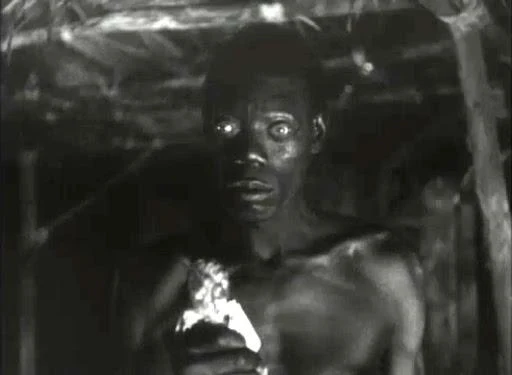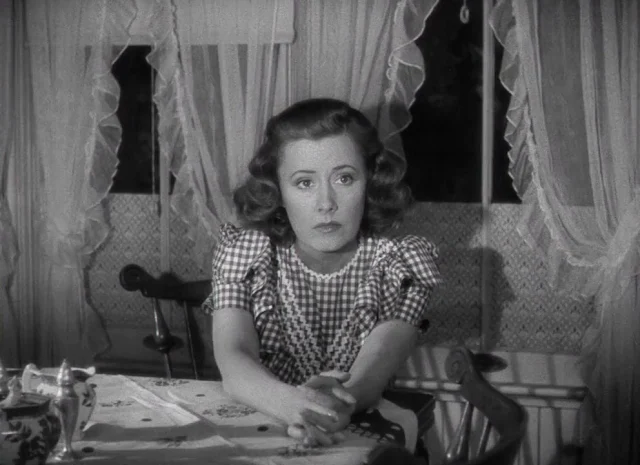A blog formerly known as Bookishness / By Charles Matthews
"Dazzled by so many and such marvelous inventions, the people of Macondo ... became indignant over the living images that the prosperous merchant Bruno Crespi projected in the theater with the lion-head ticket windows, for a character who had died and was buried in one film and for whose misfortune tears had been shed would reappear alive and transformed into an Arab in the next one. The audience, who had paid two cents apiece to share the difficulties of the actors, would not tolerate that outlandish fraud and they broke up the seats. The mayor, at the urging of Bruno Crespi, explained in a proclamation that the cinema was a machine of illusions that did not merit the emotional outbursts of the audience. With that discouraging explanation many ... decided not to return to the movies, considering that they already had too many troubles of their own to weep over the acted-out misfortunes of imaginary beings."--Gabriel García Márquez, One Hundred Years of Solitude
Search This Blog
Tuesday, October 8, 2019
I Walked With a Zombie (Jacques Tourneur, 1943)
I Walked With a Zombie (Jacques Tourneur, 1943)
Cast: Frances Dee, Tom Conway, James Ellison, Edith Barrett, James Bell, Christine Gordon, Theresa Harris, Sir Lancelot, Darby Jones. Screenplay: Curt Siodmak, Ardel Wray, based on a story by Inez Wallace. Cinematography: J. Roy Hunt. Art direction: Albert S. D'Agostino, Walter E. Keller. Film editing: Mark Robson. Music: Roy Webb.
I feel a little sorry for the viewer who watches I Walked With a Zombie expecting the lurid thrills of a certain popular TV show or even the campy ones of Hammer horror films, and encounters instead a moody, dreamlike tale that borrows heavily from Charlotte Brontë's Jane Eyre. The tone of the film is set at the very beginning, when the narrator -- Frances Dee's Betsy Connell -- says in a subdued, almost matter-of-fact manner, "I walked with a zombie." The low key restraint of her narration pervades the film, which has an insidious way of working on your nerves without subjecting them to sudden shocks. I like, too, the way in which the crime of slavery works its way into the fabric of the story as a source of horror. The coachman driving Betsy to Fort Holland reminds her of "the enormous boat [that] brought the long ago fathers and the long ago mothers of us all, chained to the bottom of the boat." Betsy burbles out the white folks' familiar defense: "They brought you to a beautiful place, didn't they?" To which the coachman can only reply with a long-learned submissiveness, "If you say so, Miss. If you say so." Betsy hasn't yet learned the lesson Paul Holland (Tom Conway) tried to teach her on the ship that brought her there. As she looks out at the stars and the sea, he tells her, "Everything seems beautiful because you don't understand.... There's no beauty here, only death and decay." A shooting star streaks across the sky. "Everything good dies here," he says. "Even the stars." I Walked With a Zombie doesn't quite deliver on that premise, in part because it's too restrained and poetic in its storytelling, but it makes a good go at it.
Monday, October 7, 2019
Penny Serenade (George Stevens, 1941)
Penny Serenade (George Stevens, 1941)
Cast: Irene Dunne, Cary Grant, Beulah Bondi, Edgar Buchanan, Ann Doran, Eva Lee Kuney, Leonard Willey, Wallis Clark, Walter Soderling, Jane Biffey. Screenplay: Morrie Ryskind, based on a story by Martha Cheavens. Cinematography: Joseph Walker. Art direction: Lionel Banks. Film editing: Otto Meyer. Music: W. Franke Harling.
Penny Serenade was released in April 1941, which explains the cozy, rosy japonaiserie of the scenes set in the country that would be vilified by Americans after Pearl Harbor, only eight months later. The idyllic sojourn of the Adamses in Japan would be brief, however, cut short by an earthquake that brings on Julie Adams's miscarriage, complications of which leave her unable to bear the children she so longs for. But that's only the beginning of their misfortunes, which left many moviegoers holding soggy handkerchiefs. The phrase "they don't make 'em like this anymore" comes to mind, except that they do: Millions of people tune in every week to follow the fortunes of the Pearson family on This Is Us. It's easy to dismiss this kind of cathartic cinema and its TV descendants, but it serves a need that shouldn't be dismissed cynically. We may prefer the Irene Dunne and Cary Grant of The Awful Truth (Leo McCarey, 1937) and My Favorite Wife (Garson Kanin, 1940), but their starry presence helps lift Penny Serenade out of the vale of tears. Grant earned one of his two Oscar nominations -- the other was for None But the Lonely Heart (Clifford Odets, 1944) -- for this film. The Academy always prefers acting that shows over acting that naturally arises out of a performer's established persona, and while his performance is by no means one of Grant's best -- there are dozens more that could be cited as essential for their Cary-Grantness -- it does make Penny Serenade more watchable than it might be today. Dunne is less challenged by her role: Noble suffering was her forte in most of her films; comic giddiness was the exception. But she doesn't overdo it here. Everything else, however, is overdone: the chubby moppets who play the Adamses' adopted daughter at different ages; the motherly rule-bending adoption agency head played by Beulah Bondi; the gruff but tender chum known as Applejack and played by Edgar Buchanan; the sentimental old songs that key each flashback. It comes as a shock to learn that so much of this tearjerking was done by screenwriter Morrie Ryskind, who got his start writing gags for the Marx Brothers and was the screenwriter for Gregory La Cava on the screwball My Man Godfrey (1936) and the acerbic Stage Door (1937).
Sunday, October 6, 2019
Wendy and Lucy (Kelly Reichardt, 2008)
Wendy and Lucy (Kelly Reichardt, 2008)
Cast: Michelle Williams, Wally Dalton, Will Patton, John Robinson, Ayanna Berkshire, Larry Fessenden. Screenplay: Jonathan Raymond, Kelly Reichardt, based on a story by Jonathan Raymond. Cinematography: Sam Levy. Production design: Ryan Warren Smith. Film editing: Kelly Reichardt. Music: Smokey Hormel, Will Oldham.
"People who can't afford dog food shouldn't have dogs," says the store clerk who has just nabbed Wendy for shoplifting a can of dog food for Lucy, who is tied up outside the store. The clerk is an insufferable young ass, sucking up to his boss, who from the look on his face is somewhat inclined to let Wendy pay for the dog food and go. But under the assault of smarmy platitudes from the clerk, he calls the police instead. Hours later, Wendy is set free and returns to the store to find Lucy gone. And so the central plot of the film, which recalls the search for the stolen bike in Bicycle Thieves (Vittorio De Sica, 1948), is set in motion. But to go back to the store clerk's remark, it's worth considering at face value: Lucy is in fact a luxury for someone as impoverished as Wendy, whose devotion to the dog complicates an already desperate existence. Lucy is by no means as essential to Wendy's survival as the bicycle is to Antonio's in the De Sica classic. Wendy is a dreamer, who thinks that she'll find gainful work in Alaska, and has set out from Indiana in her aging Honda Accord, with only a few hundred dollars, some meager possessions, and her beloved Lucy. But when the Honda breaks down in Oregon (the city is unnamed but the film was made in Portland), achieving that dream becomes infinitely more difficult. At the end, Wendy has neither car nor dog, but she persists, hopping a freight that may take her to her dream destination -- or not. It's a fable of hope and folly that leaves us to ponder the unknown, which is this small film's great strength. Like Bicycle Thieves, it makes a social comment about the need for safety nets and about the Catch-22s that plague the lives of the poor. The security guard who befriends Wendy, an old man who works 8-to-8 standing outside a strip mall to keep people from sleeping in their cars in the parking lot, observes that you can't get a job without an address, and you can't get an address without a job that allows you to pay for an address. But mostly it's a story about how dreams keep people going while also forcing them to pay the price for dreaming and not succumbing to despair. Michelle Williams is, as always, a marvel, a chameleon actress who seemingly can play anything.
Subscribe to:
Comments (Atom)





















































